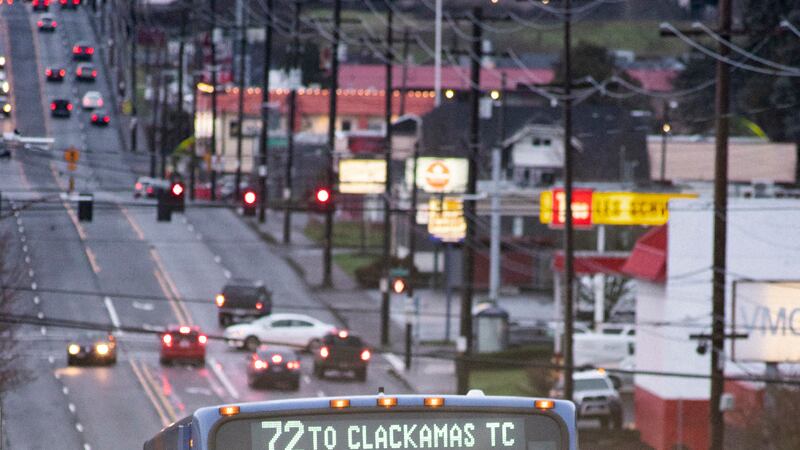Metro's $4 billion transportation Measure 26-218 on the November ballot has attracted a lot of support because it would generate construction jobs and is aimed at addressing the many inequities and bottlenecks in the region's road system. But some key Democrats, including State Treasurer Tobias Read, say they oppose 26-218.
The measure would extend a new MAX line from Portland to Bridgeport Village, electrify dozens of TriMet buses, and pay for projects to improve safety and reduce congestion in 17 regional transportation corridors, including 82nd Avenue in Multnomah County, Tualatin Valley Highway in Washington County, and McLoughlin Boulevard in Clackamas County.
"This measure could be transformative for 82nd Avenue and many corridors like it around the region," said Duncan Hwang, associate director at the Asian Pacific American Network of Oregon, in a statement Oct. 9. "There were 196 serious injuries and fatalities on 82nd Avenue between 2007 and 2017."
Proponents expect it to qualify for nearly $3 billion in federal and other matching funds, bringing the value of the transportation improvements to about $7 billion.
Not surprisingly, many elected Democrats, including Oregon Congressman Earl Blumenauer and Oregon House Speaker Tina Kotek of Portland, and dozens of groups, led by trade unions that would build the projects, have endorsed the measure.
That's expected. What's a little surprising is the willingness of some key Democrats to oppose it. Three Democratic lawmakers, state Sens. Betsy Johnson (Scappoose) and Mark Hass (Beaverton) and state Rep. Jeff Barker (Aloha), all came out against it.
Their reasoning is here.
Johnson is co-chair of the Joint Ways and Means Committee, which writes the Legislature's budget and generally likes building things. Hass is the longtime chairman of the Senate Finance and Revenue Committee and the Legislature's leading tax expert, who realized a decade-long goal last session when he helped pass the Student Success Act. Barker, who has represented Aloha in Salem since 2003, would see a $700 million project in his district, on Tualatin Valley Highway, if the measure passes. So their opposition is significant.
All three are moderate Democrats. Johnson is unassailable in her Columbia County seat, and Hass and Barker are stepping down next year, so they have little to worry about.
Perhaps most surprising is the opposition of State Treasurer Read, who hails from Beaverton, which would benefit from the TV Highway project, and who is up for reelection and widely believed to have his eye on running for governor someday.
Last week, we interviewed Read and his two challengers for the state treasurer's job: Jeff Gudman, a Lake Oswego Republican who nearly beat Read in 2016, and Chris Henry, the nominee of the Independent, Progressive and Green parties. We asked what they thought of Metro's measure. (Gudman spoke from the office of his campaign manager, Patrick Sheehan, so the Zoom caption misidentifies him.)
"I'm definitely not anti-tax or anti-transit," Read said, "but I'm going to be voting no."
Here are the candidates' full answers:
